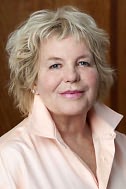- Shopping Bag ( 0 items )
-
All (22) from $12.83
-
New (17) from $13.79
-
Used (5) from $12.83





Overview
An intimate look at one of New York’s most defiant, iconoclastic couples, and the trials and successes of their marriage
To say that Robert Morgenthau and Lucinda Franks are opposites feels like an understatement. She’s a radical, self-styled hippie, and he is New York’s famous district attorney, a legal luminary of the establishment; she’s a prizewinning New York Times journalist who has chained herself to fences, bloodied draft files, and otherwise broken the law for her ...